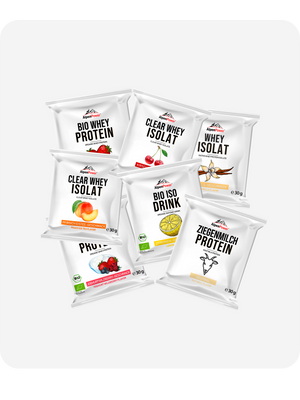The holidays (e.g. Advent and Christmas) are often characterized by increased calorie intake, extended meals, altered daily rhythms, possibly less exercise, all factors that can challenge metabolic balance. From a nutritional point of view, the aim is to maintain a balance between energy intake, energy consumption, glycogen and fat metabolism, glycogen and fat metabolisminsulin and leptin signals and circadian control mechanisms.
An important aspect: The chrononutrition or "timing of food intake" is becoming increasingly important. Recent reviews show that not only the quantity and quality of food, but also the timing (e.g. early meals vs. very late meals) are metabolically relevant. Furthermore, studies show that a disturbed circadian rhythm, for example due to late meals or shifted eating and sleeping rhythms ("social jetlag"), is associated with a more insulin-resistant metabolism, higher fat deposits and poorer metabolic parameters.
The holidays therefore harbor a number of metabolic risks, but also opportunities to consciously take countermeasures.

Study situation
- A pilot study on "intermittent energy restriction" over a six-week winter holiday period showed that people on such a dietary program were able to keep their weight stable or reduce it slightly, in contrast to typical holiday expectations.
- A recent review on chrononutrition emphasizes that early time-restricted eating has positive effects on body weight, glucose and lipid metabolism regardless of calorie reduction.
- Another study shows that the interplay between the circadian clock and food intake is crucial; food intake acts as a timer for peripheral clocks in the liver, muscle and adipose tissue with effects on metabolic processes
Strategies for the holidays
Based on these findings, the following evidence-based recommendations can be derived:
- Consciously design your food & exercise calendar
- Try to eat your main meals at fixed times of the day (e.g. midday/early evening) rather than eating very late (e.g. after 9 pm). This supports the circadian metabolic rhythm.
- Incorporate physical activity after eating, this increases energy expenditure and promotes the regulation of glucose uptake.
- Enjoyment instead of sacrifice - but with balance
- Holidays can be indulgent, but set yourself a balance: if a rich meal is coming up, the meal before or after can be kept a little lighter (e.g. vegetables, protein, moderate amount of carbohydrates).
- Pay attention to the quality of the macronutrients: more plant-based vegetables, high in fiber, good proteins, moderate amounts of high-quality fats and carbohydrates.

- Keep an eye on the time window for food intake
- A sensible strategy could be, for example, a meal window of approx. 10-12 hours, so that there is sufficient fasting time between the evening meal and breakfast (e.g. 12-14 hours). Studies show that longer periods of fasting at night can be metabolically beneficial.
- Example: Breakfast around 8 a.m. to 9 a.m., dinner no later than 7 p.m. to 8 p.m., then only drinks (water, tea), so the metabolic day becomes more consistent.

- Keeping an eye on your calorie intake, but not dictatorially
- If several celebrations occur, it helps to reduce calorie or energy consumption a little on other days (e.g. moderately fewer snacks, more exercise) without deliberately going into malnutrition.
- A conscious "mini-break" before or after an event (e.g. a light day or a walk) can help to maintain balance.
- Don't neglect rest & sleep
- Sleep and recovery times also have an effect on metabolism (e.g. insulin sensitivity, hormonal regulation). Ensure regular sleep times and sufficient recovery phases, especially in the hectic environment of the holidays.
Conclusion
Over the holidays, metabolic balance does not mean doing without, but rather smart control. By considering meal times, integrating exercise, a focused eating window and sufficient rest, enjoyment can be combined with metabolic health. Studies provide good indications of mechanisms (e.g. circadian rhythms, food time windows) and with awareness and planning, energy balance can be controlled in a targeted manner. These products can also support you. (perhaps you can link to a product collection here, with a selection of: Vitamins, EAA's, protein powders and magnesium)
Author: Laura Bahmann
Sources:
- Chrononutrition and Energy Balance: How Meal Timing and Circadian Rhythms Shape Weight Regulation and Metabolic Health: PubMed+3PubMed+3MDPI+3
- The Gut Microbiota Axis in Social Jetlag: A Novel Framework for Metabolic Dysfunction and Chronotherapeutic Innovation: PubMed+1
- Avoiding holiday seasonal weight gain with nutrient-supported intermittent energy restriction: a pilot study: PMC
- Chrononutrition and Energy Balance: How Meal Timing and Circadian Rhythms Shape Weight Regulation and Metabolic Health: MDPI+1
- Reciprocal Interactions between Circadian Clocks, Food Intake, and Energy Metabolism: MDPI











